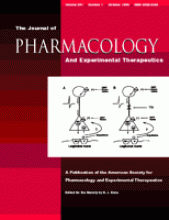Abstract
Hepatic uptake of albumin-bound amphipathic organic cations has been suggested to be mediated by multispecific bile salt and organic anion transport systems. Therefore, we investigated whether the recently cloned rat organic anion transporting polypeptides 1 and 2 as well as the human organic anion transporting polypeptide might be involved in the hepatocellular uptake of bulky type II organic cations. In cRNA-injected Xenopus laevis oocytes, all three carriers mediated uptake of the known type II model compoundsN-(4,4-azo-n-pentyl)-21-deoxy-ajmalinium and rocuronium, whereas the newly synthesized type II model compoundsN-methyl-quinine and N-methyl-quinidine were transported only by the human organic anion transporting polypeptide. This carrier-mediated uptake ofN-methyl-quinine and N-methyl-quinidine was sodium-independent and saturable with apparentKm values of ∼5 and ∼26 μM, respectively. In contrast to bulky type II organic cations, more hydrophilic type I organic cations such as tributylmethylammonium and choline were not transported by any of the organic anion transporting polypeptides. These findings demonstrate that organic anion transporting polypeptides can also mediate hepatocellular uptake of type II organic cations, whereas uptake of small and more water-soluble type I cations is mediated by different transport systems such as the organic cation transporters.
Footnotes
-
Send reprint requests to: Dr. Peter J. Meier-Abt, Division of Clinical Pharmacology and Toxicology, Department of Medicine, University Hospital, CH-8091 Zurich, Switzerland. E-mail:meierabt{at}kpt.unizh.ch
-
↵1 This work was supported by the Swiss National Science Foundation Grants 3100-045536.95 (P.J.M.), 3100-045677.95 (B.H.), and 3200-052190.97 (K.E.F.), and the Hartmann-Müller Foundation, Zurich. J.E. van M. was supported by an Ubbo Emmius scholarship of the University of Groningen. B.H. is the recipient of a research development award of the Cloetta Foundation Zurich. K.E.F. is a recipient of a SCORE-A clinical research development award of the Swiss National Science Foundation. A preliminary report of this study has been presented at the 49th Annual Meeting of the American Association for the Study of Liver Diseases (AASLD) in Chicago, November 6–10, 1998, and published in abstract form (Hepatology28, 506A, 1998).
- Abbreviations:
- OCT
- organic cation transporters
- APDA
- N-(4,4-azo-n-pentyl)-21-deoxyajmalinium
- APM
- azidoprocainamide methoiodide
- APQ
- N-(4,4-azo-n-pentyl)-quinuclidine
- OAT
- organic anion transporter
- Oatp1
- rat organic anion transporting polypeptide 1
- Oatp2
- rat organic anion transporting polypeptide 2
- OATP
- human organic anion transporting polypeptide
- TBuMA
- tributylmethylammonium
- Received March 12, 1999.
- Accepted May 26, 1999.
- The American Society for Pharmacology and Experimental Therapeutics
JPET articles become freely available 12 months after publication, and remain freely available for 5 years.Non-open access articles that fall outside this five year window are available only to institutional subscribers and current ASPET members, or through the article purchase feature at the bottom of the page.
|






